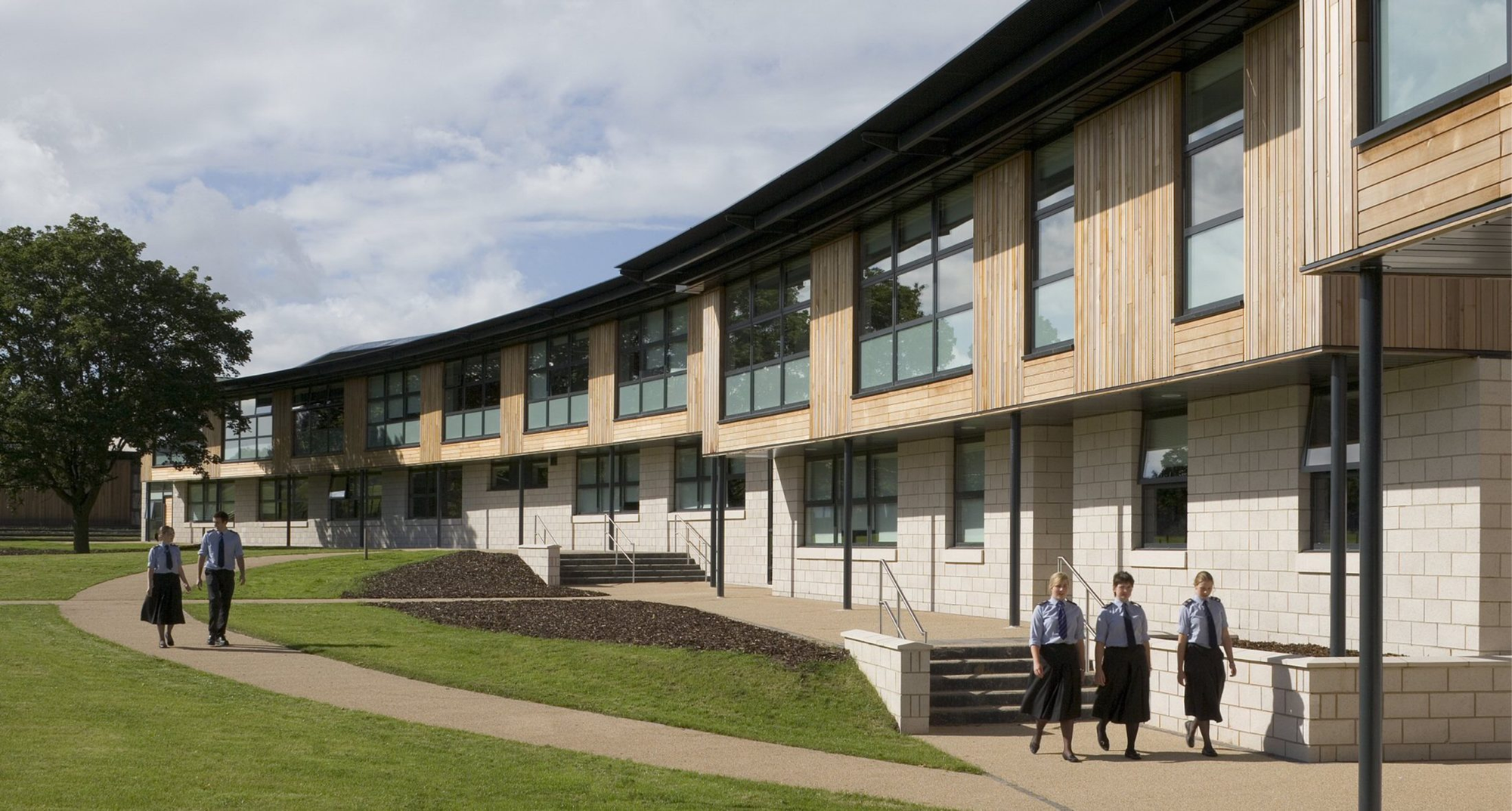英国的六年级学院实际上是什么?

What (Actually) is a Sixth Form College in the UK?
英国的六年级学院实际上是什么?

What (Actually) is a Sixth Form College in the UK?
In the UK, “sixth form” and “college” are both extensively used terms in conversation with teachers, parents, and exam-age students. Pupils often ask what a sixth form college actually is. Particularly being in Year 11, it is vitally important to understand what the term means and how sixth form college can differ from the other options available to you for the final two years of your education.
In the simplest terms possible, a sixth form college is an institute of education devoted to giving students between the ages of 16 and 19 qualifications to allow them to go to higher education at university. Sixth form is classed as further education, which is compulsory in the England, Wales and Northern Ireland.
In this article, you can read about the differences between the two types of sixth form, the best-suited personalities to college, the courses offered and how going to college can affect your future.
Table of Contents
What is a Sixth Form College in the UK?As mentioned previously, sixth form colleges provide education to students in Years 12 and 13, so that they can gain the qualifications needed to take them on to the next stages of their career.
College can mean different things in different countries, such as in the United States where college is the equivalent to our university. In the UK, a sixth form college is set up in a comparable way to British universities, only the teaching is of an A-Level or equivalent standard.
Whilst previously, a handful of teenagers would have dropped out of school at age 16, a change in the law as of 2013 means all students now must stay in some form of education until the end of Year 13.
There are three options after a student finishes secondary school. These are to stay in school sixth form, go to a sixth form college or take on an under-18s apprenticeship with a company in your desired career path. Although the third is a workable possibility, it cuts your future work choice down into a very slim field, so most students choose to either attend school sixth form or college.
What Do You Learn at Sixth Form College?As a student attending college, you have several choices as to the style of learning you wish to have, as some colleges offer three distinct types of qualification. One of your options is taking three or four A-Level courses, just like in a school, so that you can learn about subjects which have previously been visited during GCSE, but in more detail.
Some sixth form colleges may also offer BTEC courses, which are very similar in structure to the education offered at university. They are similar in that students can choose one broad area of study rather than studying many subjects they don’t care about like at school.
Your final option, which isn’t offered by as many sixth form colleges, is following the International Baccalaureate Diploma Programme. To complete the course, you must study six subjects, and take an exam for each, write an extended research essay, and form an oral presentation about how society absorbs and utilises knowledge, as well as contributing to the creativity, activity, service section.
What are the Differences Between a School Sixth Form and Sixth Form College?There is a big step up from GCSE to A-Level work, and this jump becomes even bigger if you choose to move to sixth form college. However, each different education environment suits some people better than others. Therefore, it is important to know what the differences between school sixth form and college are, as finding the right place for you will make the transition more comfortable.
Sixth FormSixth form colleges give students more freedom. At a school sixth form, you are obviously given more independence than younger year groups. However, there is still a large focus on making sure you turn up to classes, complete homework, and finish A-Levels with a decent grade. At college, there is less guidance, so if the work isn’t done, they won’t chase it up.
The courses offered at sixth form colleges are often less well-known, more precise and there is a wider variety. Compared to school, where there may be thirty subjects offered as A-Level courses. Colleges also provide BTECs, which can be vastly different from anything students have ever experienced before, just like in university.
Sixth Form CollegeColleges lean towards a university teaching style, while schools stick to the same methods. Because there are bigger classes, life at college is basically the same as at university, only the work is easier and there is no need to find any accommodation.
There is less opportunity for extra-curricular activities to help boost university applications. There are no younger year groups to mix with, so schemes such as peer mentoring and leadership do not exist, which can be useful for applications.
College gives you looser restrictions, so there are no strict dress codes, and a shorter amount of time is spent in lessons. However, if you are prone to forgetting homework and don’t have the motivation for independent work, school will give you the extra push to make sure those grades are as good as possible.
How Should You Choose the Right Sixth Form College for You?If you have decided that sixth form college is the right path for you to take, it is time to decide where you actually want to go. There are several factors to consider when choosing the correct sixth form college for you:
The range of subjects available and the availability of each. This will take some research time, but one of the most important things to get right when moving to a sixth form college is getting all of your first or second choice subjects.
One of the greatest things about moving to sixth form college is how many more subjects are available, so don’t waste the opportunity! If a college can’t fit all your first-choice subjects into a timetable, then it’s always worth looking at some other institutions too.
The facilities available for use. Particularly if you’re looking at arts, sciences, or other practical subjects, make sure to check out the facilities available at the school. For example, if your passion is photography and the department doesn’t have any photographic film or a dark room, there is a limited media you could use in your projects, so you may wish to search elsewhere.
How well built is the college community. Lots of students who have attended college in the past say the trickiest thing to cope with is loneliness and lack of support. The atmosphere completely changes between school and college, so looking for one with a good support system and a range of activities outside lessons is vital to cope with the jump.
How Should You Approach the Application to Sixth Form College? Once you’ve found a suitable college and are happy with the courses available, it’s time to start the application process. The first and most important thing to remember is giving yourself enough time to complete the forms before the deadline.
When Should You Start Applying for Sixth Form College?There are several steps involved in the process of college applications, detailed below, and your statements will sound much more confident and academic if you’ve had the time to carefully consider what you write, rather than hurrying through the chore the night before.
Applications can start as early as the autumn of Year 11 and are usually closed before the New Year, so you’ll need to have visited open days and done your research during the summer between Years 10 and 11 (or earlier!).
What Information Should be Included in the Application?
Then, you need to start thinking about the main contents of your application. It should consist of your personal details, such as name and address, a personal statement, and your predicted grades from the last set of mock exams you took.
The personal statement is the most important thing to get right. In the statement, you should include information about your personality, work ethic and any other good qualities you have.
You can then move on to speaking about your achievements, both academic and extra-curricular, and any skills you’ve gained through experience, such as leadership with children in younger year groups.
You should try to link anything added back to the course you wish to apply for (which should be listed somewhere previously in the application). And that’s it. You’re done!
Is it Better to Do A-Levels or a BTEC Course?
One thing lots of students worry about when applying to college is whether they will be accepted at universities if they take a BTEC course rather than three A-Levels. Whilst an A-Level proves that you have academic capabilities. BTEC qualifications show that a person has real life skills and will use them effectively in the workplace, which lots of universities appreciate.
So, most of them will accept you even if you have a BTEC rather than A-Levels, but this depends on the university you’re looking at.
You have to be careful about checking the admissions requirements for some of the top universities like Oxford and Cambridge. They say that if you have the right grades, they are willing to consider a BTEC student, so long as they also have one or two A-Level qualifications in addition.
When the time comes to consider whether you’re better off taking a BTEC course or A-Levels, you need to think carefully about what your future ambitions are and do some research into the requirements for your chosen university. It is possible that just taking BTECs with no other qualifications may hinder your future employment progress.

参考译文:
英国的六年级学院实际上是什么?
在英国,“Sixth Form”和“college”都是与老师、家长和应试年龄的学生交谈时广泛使用的术语。学生们经常问什么是六年级学院。特别是在 11 年级,了解该术语的含义以及六年级大学与您在教育的最后两年中可以选择的其他选择有何不同至关重要。
用最简单的话来说,六年级学院是一所致力于为 16 至 19 岁学生提供资格的教育机构,使他们能够在大学接受高等教育。六年级被归类为继续教育,在英格兰、威尔士和北爱尔兰是义务教育。
在本文中,您可以了解两种类型的六年级之间的差异、最适合大学的性格、提供的课程以及上大学如何影响您的未来。
目录
什么是英国的六年级学院?如前所述,六年级学院为 12 年级和 13 年级的学生提供教育,以便他们能够获得进入职业生涯下一阶段所需的资格。
学院在不同的国家可能有不同的含义,例如在美国,学院相当于我们的大学。在英国,六年级学院的设立方式与英国大学类似,只是教学达到A-Level或同等标准。
此前,少数青少年会在 16 岁时辍学,但 2013 年法律的变化意味着现在所有学生都必须接受某种形式的教育,直到 13 年级结束。
学生完成中学学业后有三种选择。这些是留在学校六年级、进入六年级大学或在您想要的职业道路上的公司接受 18 岁以下的学徒期。虽然第三种是可行的可能性,但它将你未来的工作选择范围缩小到一个非常小的范围,因此大多数学生选择要么上六年级,要么上大学。
您在六年级学院学到什么?作为大学生,你可以选择多种学习方式,因为有些大学提供三种不同的资格证书。你的选择之一是选修三到四门 A-Level 课程,就像在学校一样,这样你就可以更详细地学习 GCSE 期间学习过的科目。
一些六年制学院也可能提供 BTEC 课程,其结构与大学提供的教育非常相似。相似之处在于学生可以选择一个广泛的学习领域,而不是像在学校那样学习许多他们不感兴趣的科目。
课程,但许多六年级学院并不提供这种选择。要完成课程,您必须学习六个科目,并参加每个科目的考试,撰写一篇扩展的研究论文,并就社会如何吸收和利用知识以及为创造力、活动和服务部分做出贡献进行口头陈述。
六年级学校和六年级学院有什么区别?从 GCSE 到 A-Level 工作有一个很大的进步,如果你选择升入六年级大学,这个进步会更大。然而,每种不同的教育环境都比其他人更适合某些人。因此,了解六年级学校和大学之间的区别非常重要,因为找到适合您的地方将使您的过渡更加舒适。
六年级六年级大学给学生更多的自由。在学校六年级,你显然比低年级的学生拥有更多的独立性。然而,我们仍然非常注重确保你按时上课、完成作业并以良好的成绩完成 A-Level 课程。在大学里,指导较少,所以如果作业没有完成,他们就不会去追。
六年制学院提供的课程通常不太出名,但更精确,种类也更多。与学校相比,学校可能有三十门 A-Level 课程。学院还提供 BTEC,这可能与学生以前经历过的任何事情都大不相同,就像在大学里一样。
高中六年级学院倾向于大学的教学方式,而中学则坚持相同的教学方式。由于班级人数较多,学院的生活与大学基本相同,只是工作更轻松,无需寻找住宿。
课外活动帮助提升大学申请的机会更少。没有低年级学生可以混在一起,因此不存在同伴辅导和领导力等对申请有用的计划。
大学对你的限制比较宽松,所以没有严格的着装要求,上课时间也更短。但是,如果你容易忘记作业,没有独立工作的动力,学校会给你额外的推动力,确保你的成绩尽可能好。
您应该如何选择适合自己的六年制学院?如果你已经决定六年级学院是适合你的道路,那么现在是时候决定你真正想去哪里了。在为你选择合适的六年级学院时,有几个因素需要考虑:
可选科目的范围和每门科目的可用性。这需要花一些时间进行研究,但进入六年级学院时最重要的事情之一就是获得所有第一或第二选择科目。
升入六年级学院的最大好处之一是有更多科目可供选择,所以不要浪费机会!如果一所学院无法将您所有的首选科目纳入时间表,那么也值得考虑其他机构。
可用的设施。特别是如果你正在考虑艺术、科学或其他实践科目,一定要查看学校提供的设施。例如,如果你热衷于摄影,而该系没有任何摄影胶片或暗室,那么你在项目中可以使用的媒体就有限,所以你可能希望在其他地方寻找。
大学社区建设得如何。很多曾经上过大学的学生说,最难应对的是孤独和缺乏支持。学校和大学的氛围完全不同,因此寻找一个拥有良好支持系统和一系列课外活动的社区对于应对这种转变至关重要。
您应该如何申请六年级学院?一旦您找到合适的大学并对可用的课程感到满意,就可以开始申请过程了。首先要记住的也是最重要的事情是给自己足够的时间在截止日期之前完成表格。
您应该什么时候开始申请六年级大学?大学申请过程涉及几个步骤,如下所述,如果您有时间仔细考虑您所写的内容,而不是在前一天晚上匆忙完成杂务,那么您的陈述听起来会更加自信和学术。
申请最早可以在 11 年级的秋季开始,通常在新年之前关闭,因此您需要在 10 年级和 11 年级之间(或更早!)的夏季参加开放日并完成研究。
申请中应包含哪些信息?
然后,您需要开始考虑申请的主要内容。它应该包括您的个人详细信息,例如姓名和地址、个人陈述以及您参加的最后一组模拟考试的预测成绩。
个人陈述是最重要的事情。在声明中,您应该包括有关您的个性、职业道德和任何其他良好品质的信息。
然后,您可以继续谈论您的成就,包括学术成就和课外成就,以及您通过经验获得的任何技能,例如对低年级孩子的领导能力。
您应该尝试将添加的任何内容链接回您想要申请的课程(应在申请表的前面的某个位置列出)。就是这样。你完成了!
参加 A-Level 课程还是 BTEC 课程更好?
许多学生在申请大学时担心的一件事是,如果他们参加 BTEC 课程而不是三门 A-Level 课程,是否会被大学录取。 A-Level证明你有学术能力。 BTEC 资格表明一个人拥有现实生活技能,并且能够在工作场所有效地运用这些技能,这一点受到许多大学的赞赏。
因此,即使您拥有 BTEC 而不是 A-Level 证书,他们中的大多数人也会接受您,但这取决于您正在寻找的大学。
您必须小心检查牛津和剑桥等一些顶尖大学的入学要求。他们说,如果你成绩合适,他们愿意考虑 BTEC 学生,只要他们另外还拥有一两个 A-Level 资格。
当你考虑是参加 BTEC 课程还是 A-Level 课程时,你需要仔细考虑自己未来的目标,并研究一下所选大学的要求。只参加 BTEC 课程而不参加其他课程可能会阻碍你未来的就业。
